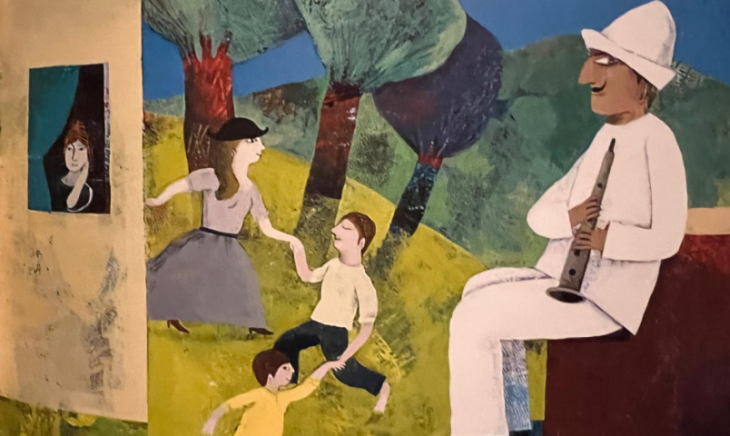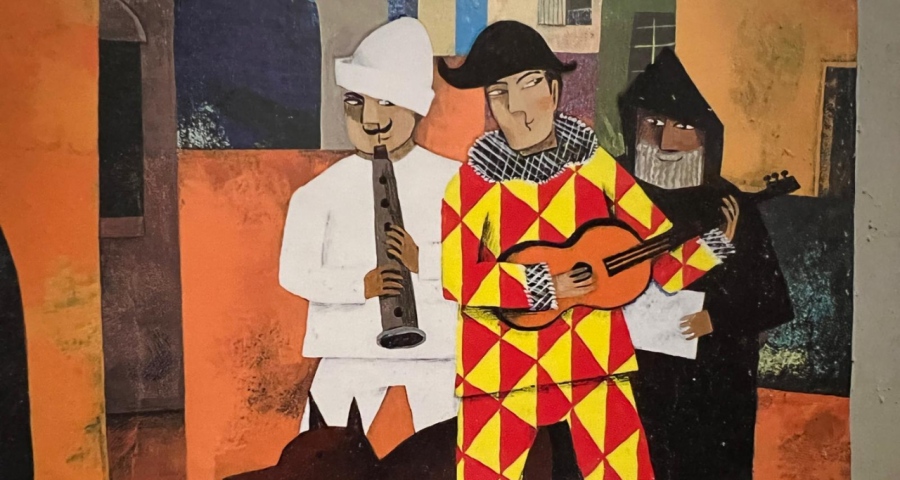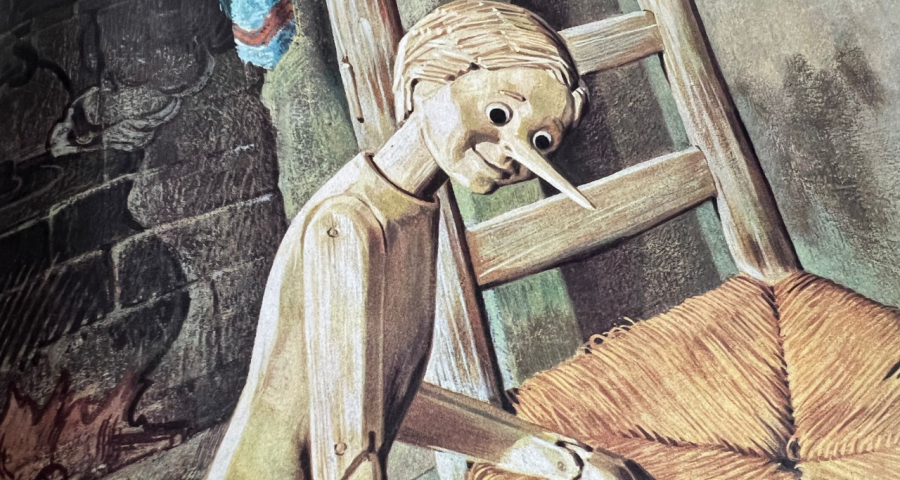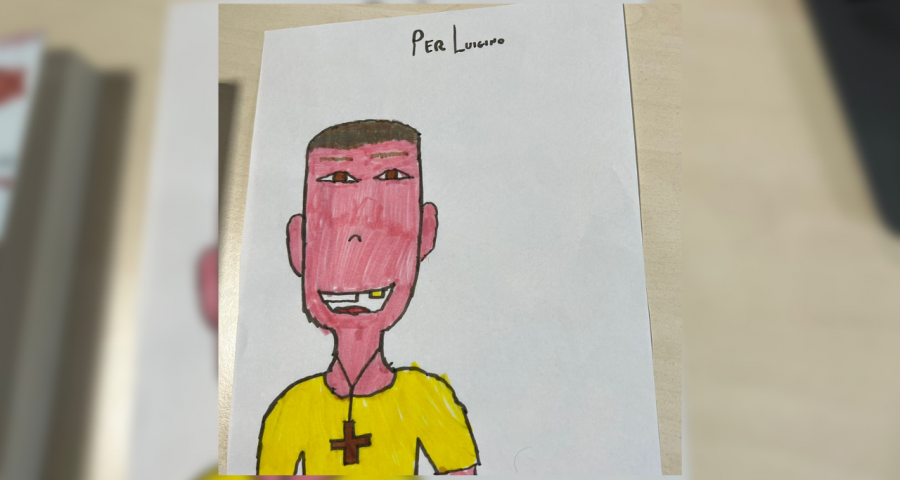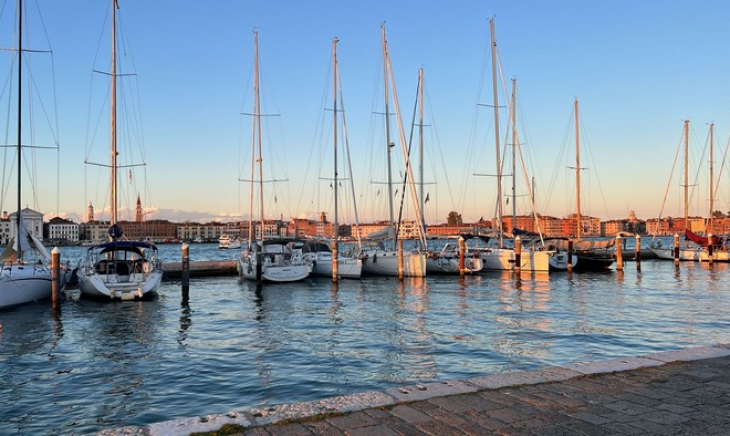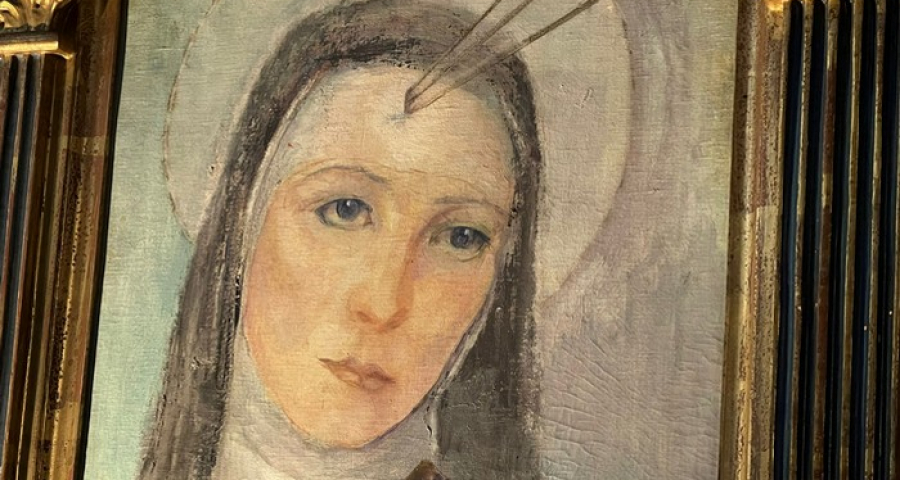Roots of the future/7 – What is truly difficult is to find life and God where life and God do not exist
By Luigino Bruni
Published in Avvenire 16/10/2022
My child, for you I would have given all the gardens of my kingdom if I had been queen, down to the last rose, down to the last feather. The whole kingdom for you. Instead, I leave you shacks and thorns... We are just confused, believe me. But, we hear. Let us hear again. We are still capable of loving something. We still feel pity. There is splendour in everything. I have seen it. I see it clearer now. There is splendour. Do not be afraid.
Mariangela Gualtieri
The book Cuore/Heart is a book that, in some pages, still speaks to us. It reminds us of what school (and health care) are really all about. An exercise that is necessary to understand which virtues of yesterday are to be preserved even today.
Each generation must decide which virtues of yesterday it wants to keep and which ones it wants to forget. Very few virtues are virtues anytime and anywhere; all the others are virtues here and now, and some virtues turn into vices (and vice versa) over time. Military virtues were great virtues in past civilizations. They were transmitted within families, in religions, in schools, narrated by fairy tales and novels. Those warrior and patriotic tales are still sometimes able to move us. However, we decide not to indulge in them and look away. Because the history of wars teaches us that the tree of democracy is born, grows, and bears good fruit when other virtues are cultivated as well: meekness, dialogue, reciprocity, compassion, tolerance, non-violence. Therefore, words like "the enemy" eventually left the territory of virtues to enter that of the words to be placed in yesterday's cupboard.
The book Cuore/Heart by Edmondo De Amicis, one of the most widely read books in Italy and in the world, talks extensively about virtue. A lot about military virtues and love of one’s country, important virtues for the young Kingdom of Italy. Who could ever forget the 'Little Lombard lookout' (‘Piccola vedetta lombarda’) or the 'Sardinian drummer' (‘Tamburino sardo’)? But the children from De Amicis’ time read those tales of little hero soldiers while they were sitting at their school desks, telling us, perhaps beyond the author's intention, that the right place for children should be the school yard, not the battlefield. Hence, the first criticism of those warlike virtues was intrinsic to the book itself, which, while narrating them, surpassed them to found a different kind of civilization.
I reread Cuore/Heart as an adult. I liked it very much, some pages very much. I did not share Umberto Eco's sarcasm (Elogio a Franti, 1962) and I appreciated Benedetto Croce's fine judgment (La Critica, 1903). A book that speaks about children, families, poverty and a lot of pain, it talks about adults and teachers - the portrait of the 'little teacher with the red pen' is wonderful. Above all, however, it speaks about school, of the first school years for schoolchildren. Cuore/Heart is a book that sees young people, in a society that "did not see" young people or children, and therein began to see them in their act of going to school. It is still there, while they run lightly with their heavy backpacks, and every generation must learn to see them again, to understand them, to understand the present and the future.
We find ourselves in Turin, Italy, in 1886, in an elementary school, after the Coppino Law (1877) which had led to three years of compulsory schooling. It is the dawn of school for everyone and, as in every dawn, the light and the air feel different and unique. Cuore/Heart is a book about the greatest civil and moral revolution in modern times. Before this (and partly even after), only the children of nobles and the rich went to school. Those of the poor, on the other hand, had to work, work too much and in bad conditions - of my four grandparents and grandmothers only Domenico and Luigi knew how to write their own signature, because – being boys - they had completed the first and second grade.
De Amicis is very good at letting us enter the desks of those elementary school classes: «I was born to be a school teacher, and when I see four desks and a table in a room, I feel stirred!» (Pagine sparse /Scattered pages, 1874). This is where we can once again understand what truly was and continues to be the school of all and for all. In that Italy and Europe, the children of the rich went to school together with the children of the poor, different social classes who met and fraternized thanks to the friendship and fraternity at their school desks. It was in the classroom that the social envy that is the root of all social disharmony was dissolved. They were all different and yet all the same. A still semi-feudal Italy that learned the ABC of democracy in the classrooms, which were and remain no less important than the halls of parliament. We were able to write the prophetic articles of the Constitution because we had lived that new humanism and written it in writing and dictate exercises - we are based on work because poor children can go to school. Then we began wanting children with special needs to be in everyone's classes too, thanks to the help of support teachers (I have encountered many of them again in the book Cuore/Heart), thus chasing away the temptation of "special classes". The racial-racist laws were inhumane in every respect, but they were also sacrilegious when they drove Jewish children out of schools. Having to exit the doors of their classrooms then was no less frightening and terrible for those boys and girls than entering the door of the concentration camps.
The stories in Cuore/Heart speak of children, boys, between 9 and 12-13 years old. A wonderful age, suspended between childhood and adolescence. When the innocence of childhood is gone and another one blossoms in its place. An innocence that, for example, is expressed in a new trust in adults - the "men", as the boys in Cuore/Heart call them, because to them adults are the inhabitants of a very different world. The unconditional trust of yesterday's child, which is still there, is now also coloured with esteem and imitation. It is an age where little ones truly love grown-ups, uncles and aunts, masters and teachers. They no longer have the candour of a child, but they have a different one, with more splendour. They also have a typical and extraordinary intelligence that, in certain aspects, disappears with adolescence and that transience turns sublime - this different and ephemeral intelligence is the moral heritage of humanity. Some pages of Cuore/Heart are among the best of Italian literature. Some of its short stories are novels within the novel - we will return to some of them again next Sunday.
From the Apennines to the Andes. It is the story of Marco, a thirteen-year-old Genoese boy, who leaves for Argentina on his own, in search of his mother. I see Marco again in the many boys who still leave alone to this day, embarking on our sea. Sometimes they arrive, some find their mother or father or both, others find the ports closed, too many only find their deaths. When, after a very long and desperate journey, he reaches Tucuman (De Amicis had been in Argentina), Marco finally finds his sick mother, we read one word three times in a row: «God, God, my God», cried out by the mother when she sees her son. Cuore/Heart has been criticized for the absence of religion: this triple word yelled out by a mother fills the book with a highly spiritual fragrance; it is the silence of religion that makes the word "God" reverberate. It is also significant that the most loved and influential children's books in a very Catholic Italy were Cuore/Heart and Pinocchio, books that speak very little of God and religion but that know how to speak to the soul of children (and adults). Perhaps because the works that are born with the intention of writing a religious book are rarely good books (it would require the immense and troubled religious genius of Manzoni or Dostoevsky); because the message tends to devour the art, which has an absolute need for freedom and gratuitousness. God loves to sneak into life without our knowledge, to surprise and amaze us: this is how He protects Himself from our ideologies. However, ideological books, including religious ones, never work with children and young people. Children encounter God and his spirit only in life, not in our ideas about life. They come into the world equipped with a religious sense that they bring as a dowry from the world from which they came and with which they remain in vital and continuous contact for years. They are companions of the angels and the citizens of Heaven. We adults can only talk to them about God if we enter this kingdom of theirs - «if you don't become like children... » It is difficult to transmit faith to children because instead of trying to enter their different kingdom, we ask them to enter ours, which is much less evangelical or religious.
Daddy’s nurse/L’infermiere di tata, perhaps my favourite "monthly story". Cicillo is sent by his mother to a hospital in Naples to visit his father, dad, who has returned from France and is hospitalized there. The nurse points to a very sick man: «Here is your father». Cicillo bursts into tears, «poor daddy, he has changed so much». Cicillo assists him; the patient’s eyes almost always remain shut. And so Cicillo «began his life as a nurse»: he arranged the blankets, touched his hand and chased away the flies». After five days of assistance, a man enters the big room and shouts: «Cicillo!». It was ... his father. The boy had cared for another sick person. He hugs his father again, but he does not move from that bed. His father asks him to come home, and Cicillo says: «There's that old man... He's always looking at me. I thought it was you... Let me stay here a little longer». Cicillo stays, and «went back to being a nurse again». She stays with him for a few days, constantly holding his hand. In the end the man dies. Cicillo leaves, but is looking for a name to give to that man: «And the sweet name that she had called him during five days came to her again from the bottom of her heart: Goodbye poor daddy». Thus, Cicillo reveals one of the secrets of human existence to us: we start by loving a mother and a father and a few siblings, and end by discovering that every man and woman is our "brother, sister, mother and father".
Cicillo is also a splendid image, because she is a girl, of the nuns, of the nurses, of both yesterday and today. Although they did not know our name, they treated us like their own dad, and continue to do so. This is the profound nature of health care, a wonderful world of strangers who look after and hold the hands of strangers who, however, look a lot, even too much, like the people back home. If we look closely, Cicillo continues to hold someone’s hand and chase away the flies every day in our hospitals, thanks to that very secular and religious pietas that keeps the world on its feet. And how can we not hear an echo of the "Behold your mother" which Jesus says to John, in that «Behold your father» that the nurse says to Cicillo? The most difficult thing is to learn to find life within death, to see the Gospel where it should not be, to touch God where there is no God.






_large_large.png)
